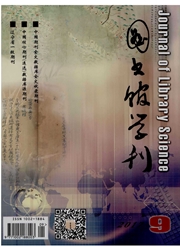

 中文摘要:
中文摘要:
清末白话文运动不仅是研究中国政治、社会、思想、文化近代化过程中不能忽略的一环,更是五四白话文运动和新文学革命的前驱乃至重要环节。然而,这一极富学术价值的跨学科课题,迄今的研究基础甚为薄弱,且存在着一些根深蒂固的偏见和不应漠视的盲点,以及诸多似是而非的常识性错误和尚未走出的认识误区。从作为启蒙与革命思潮、语言文字革新思潮和白话文学思潮等视角对其进行系统研究,深入考察其白话文(学)的原初状态及其语言、文体、语体和观念流变,发掘大量鲜为人知的文学作品等,是这一领域富有学术价值的着力方向。
 英文摘要:
英文摘要:
The vernacular language movement in late Qing Dynasty is not only an indispensable link in China's modernization process in politics, society, thoughts and culture; it is more a prelude to and a significant section of the vernacular language movement new literature revolution in the May Fourth Period. However, in this extremely academically important domain of inter-disciple research, there are only very weak research basis, certain inherent prejudices and undue blind spots and many specious fallacies and indulging misunderstandings. Academically rewarding researches in this domain will lay in systematic explorations in perspectives of the relations between the movements as enlightenment and later thoughts of revolution lingual and through surveys pf the primary state literal renovation and vernacular-language of vernacular-language-based literature -based literature, and and its evolutions in language, style, genre and ideas, and in rediscovery of unknown artistic works.
 同期刊论文项目
同期刊论文项目
 同项目期刊论文
同项目期刊论文
 期刊信息
期刊信息
